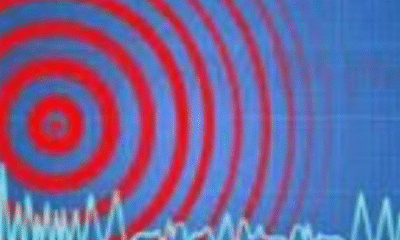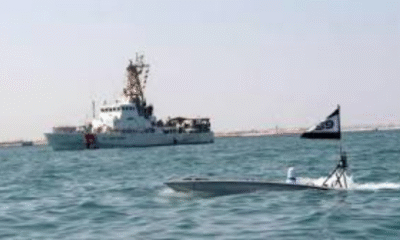International
Putin claims successful test of ‘Poseidon’ nuclear torpedo – analysts see political signaling

Russian President Vladimir Putin has claimed that his country successfully tested the “Poseidon,” a nuclear-powered super torpedo, saying “there is nothing like it in the world.” The announcement came on Wednesday (October 29) while he was visiting wounded soldiers from the Ukraine war at a hospital in Moscow.
Military analysts describe Poseidon as a weapon capable of generating massive radioactive sea waves that could devastate coastal regions. First revealed in 2018, the system is believed to combine nuclear torpedo and drone technologies.
Earlier, on October 21, Russia also tested a new nuclear cruise missile named “Burevestnik,” which NATO calls SSC-X-9 Skyfall. Moscow claims the weapon can penetrate any defense system.
Experts, however, question the operational value of these weapons. Russia analyst Mark Galeotti told the BBC that such devices are “Armageddon weapons,” usable only if one intends to destroy the entire world.
Analysts believe Putin’s announcement is more political than military. With the Ukraine war stalled, Western sanctions tightening, and US–Russia talks collapsing, Moscow may be using these tests to project strength.
US President Donald Trump responded by ordering the first nuclear weapons tests in 33 years, though he gave no details about the type of weapons involved.
The International Institute for Strategic Studies (IISS) in London noted that both Poseidon and Burevestnik face major “technical challenges” with their nuclear propulsion systems, casting doubt on their actual effectiveness.
International
Twin Earthquakes Hit Indonesia and Myanmar as Bangladesh Recovers from Deadly Tremor
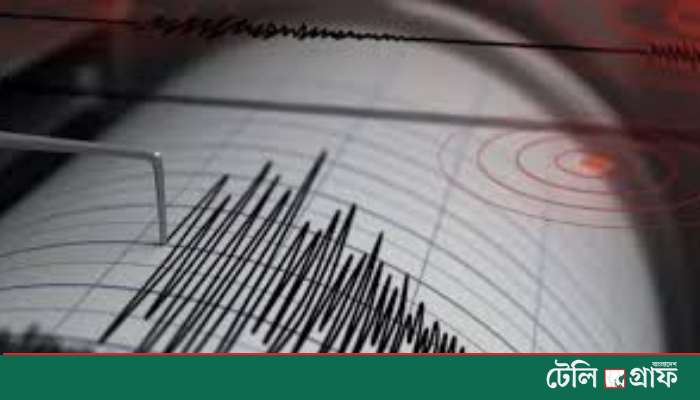
A 5.2-magnitude earthquake struck Indonesia’s North Maluku province, though authorities reported no casualties or damage. The Meteorology, Climatology and Geophysics Agency confirmed that the quake originated 10 kilometres beneath the surface.
The tremor hit the Halmahera region on Sunday and comes as Indonesia continues to experience frequent seismic activity due to its location along the Pacific “Ring of Fire,” where several tectonic plates converge.
Meanwhile, a separate 5.3-magnitude earthquake shook Myanmar’s coastal region the same morning. According to the US Geological Survey (USGS), the quake struck at 10:39am Bangladesh time, with its epicentre located in the Andaman Sea, about 267 kilometres west-southwest of Dawei. The tremor was also felt in parts of neighbouring Thailand, though no damage has been reported.
Just two days earlier, on 21 November, a 5.7-magnitude earthquake jolted several parts of Bangladesh, including Dhaka. The quake, which originated in Narsingdi’s Madhabdi area, left 10 people dead and many others injured.
International
24 Killed in Israeli Strikes Despite Gaza Ceasefire
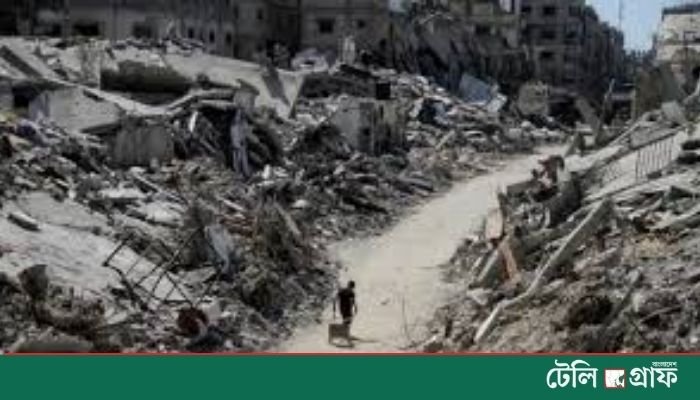
Despite a six-week-long ceasefire in the Gaza Strip, at least 24 Palestinians have been killed in renewed Israeli air and drone strikes. The attacks, which began early Saturday, also left 87 others injured, according to local health authorities. Children are reported to be among the dead.
Witnesses said the first strike targeted a car in northern Gaza City, followed by successive attacks in Deir al-Balah and the Nuseirat refugee camp. In Gaza City’s Rimal area, a drone strike killed 11 people and injured 20 others. Rami Muhanna, director of Al-Shifa Hospital, confirmed that many of the wounded remain in critical condition.
In Deir al-Balah, a strike on a residential house left three people dead, including a woman. The blast was so powerful that nearby residents fled in panic. “This cannot be called a ceasefire,” said eyewitness Khalil Abu Hatab. “There is no safe place left.”
Hamas has accused Israel of repeatedly violating ceasefire terms and has urged the United States to intervene immediately. The group claims the strikes are targeting civilians and called for stronger international action to halt the attacks.
International observers warn that the renewed violence could escalate tensions further amid Gaza’s deepening humanitarian crisis.
International
Trump Designates Saudi Arabia a Major Non-NATO Ally at White House Dinner

The United States has designated Saudi Arabia as one of its most important non-NATO military allies, President Donald Trump announced on Tuesday during a White House dinner held in honour of Saudi Crown Prince Mohammed bin Salman, according to Al Jazeera.
Trump said the official designation as a Major Non-NATO Ally would elevate military cooperation between the two countries. The United States has granted this status to only 19 nations so far. He added that the decision had been kept confidential until the event at Saudi Arabia’s request.
The President also noted that the Crown Prince would play a role in a council being formed to establish peace in Gaza, adding that he himself would serve as its chairman, as previously stated.
Earlier, Crown Prince Mohammed bin Salman arrived in the United States for the meeting. Discussions covered military cooperation, nuclear technology, artificial intelligence, and increased Saudi investments in the US. The Crown Prince announced plans to raise Saudi investments from 600 billion USD to 1 trillion USD.
Talks also included potential sales of advanced F-35 fighter jets to Saudi Arabia.
-
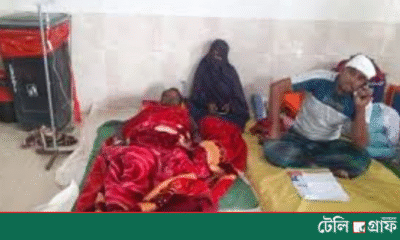
 People and Culture1 day ago
People and Culture1 day agoWedding Invitation Dispute Sparks Violent Clash in Jhenaidah; 10 Injured
-

 Economy1 day ago
Economy1 day agoGiant 32-kg Poa Fish Caught Near St Martin’s; Fisherman Demands Tk 600,000
-
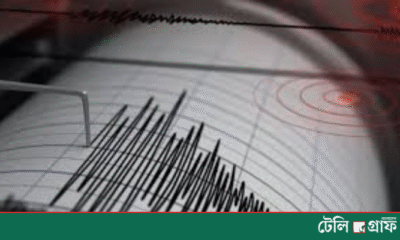
 People and Culture1 day ago
People and Culture1 day agoFive Dead as Strong Quake Jolts Bangladesh; Dhaka at Major Risk
-
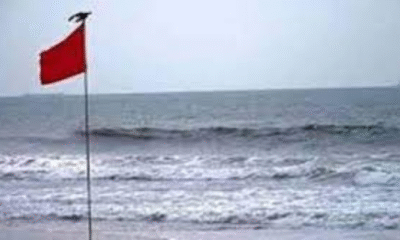
 Weather1 day ago
Weather1 day agoLow-Pressure Likely Over South Andaman Sea as Temperatures Set to Dip
-
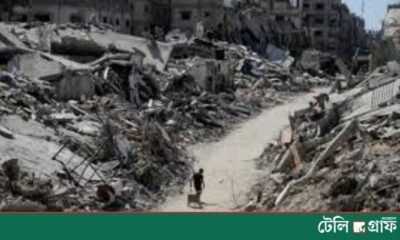
 International13 hours ago
International13 hours ago24 Killed in Israeli Strikes Despite Gaza Ceasefire



